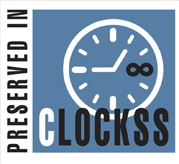Resumen
Effect in self-care behavior and difficulties in coping with diabetes during the COVID-19 pandemic
VOLUMEN 8 - NÚMERO 1 / Enero - Marzo (Artículo COVID / COVID article) doi: 10.24875/RME.20000063
Rubén Silva-Tinoco, Clínica Especializada en el Manejo de la Diabetes en la Ciudad de México, Servicios de Salud del Instituto Mexicano del Seguro Social para el Bienestar (IMSS-Bienestar), Ciudad de México, México
Arnulfo González-Cantú, Department of Research and Teaching, Hospital Clínica Nova, San Nicolás de los Garza, Nuevo León. México
Viridiana de la Torre, Clinic Specialized in the Diabetes Management in Mexico City, IMSS-Bienestar, Public Health Services, Mexico City, Mexico
Eileen Guzmán, Clinic Specialized in the Diabetes Management in Mexico City, IMSS-Bienestar, Public Health Services, Mexico City, Mexico
Teresa Cuatecontzi-Xochitiotzi, Clinic Specialized in the Diabetes Management in Mexico City, IMSS-Bienestar, Public Health Services, Mexico City, Mexico
Lilia Castillo-Martínez, Clinical Nutrition Service, Instituto Nacional de Ciencias Médicas y Nutrición Salvador Zubirán. Mexico City, Mexico
María E. Romero-Ibarguengoitia, Research Department, Hospital Clínica Nova, San Nicolás de los Garza, Nuevo León, Monterrey, Mexico
Areli Nahuacatl-López, Clinic Specialized in the Diabetes Management of the Mexico City Government, Servicios de Salud Pública del Gobierno de la Ciudad de México, Mexico City, Mexico
Carmen Castillo-Galindo, Clinic Specialized in the Diabetes Management of the Mexico City Government, Servicios de Salud Pública del Gobierno de la Ciudad de México, Mexico City, Mexico
Arturo Orea-Tejeda, Department of Cardiology, Instituto Nacional de Enfermedades Respiratorias Ismael Cosío Villegas, Mexico City, Mexico
Javier Serna-Alvarado, Public Health Services of the Mexico City Government, Mexico City. Mexico
Enrique León-García, Public Health Services of the Mexico City Government, Mexico City. Mexico
Jorge Ochoa-Moreno, Public Health Services of the Mexico City Government, Mexico City. Mexico
In this study, difficulties in coping with diabetes were evaluated during the coronavirus disease 2019 (COVID-19) lockdown. Similarly, the change in diabetes self-care activities was evaluated in patients with a recent assessment before COVID-19 lockdown in Mexico City. In 212 patients with type 2 diabetes (T2D) and regular primary care, a designed questionnaire was used to evaluate the presence/absence of difficulties in self-care related to diet, physical activity/exercise, glucose monitoring, treatment adherence, getting pharmacological treatment, and confinement adherence. The Summary of Diabetes Self-Care Activities tool was used to compare the frequency of self-care behaviors in the past 7 days. Self-reported difficulties in coping with T2D were documented and included difficulties in self-care behaviors related to diet (41.6%), physical activity/exercise (40.5%), glucose monitoring (23.7%), getting pharmacological treatment (22.9%), pharmacological treatment adherence (19%), and home-confinement adherence (11.7%). In the group of patients with a recent previous-lockdown evaluation, global self-care behavior decreased from 5.15±0.9 to 4.49 ± 1.02 days/week, p < 0.001. Diabetes self-care was a predictor for the presence of difficulties in coping with diabetes. Patients with T2D reported difficulties in coping with T2D and decreased diabetes self-care activities during the COVID-19 lockdown in Mexico City. Health-care policies must be designed and implemented to attenuate diabetes disease burden caused by this ongoing and future health-contingencies.
Palabras clave: Diabetes self-care. Self-care behavior. Coronavirus disease 2019. Lockdown.
Artículo completo en PDF




